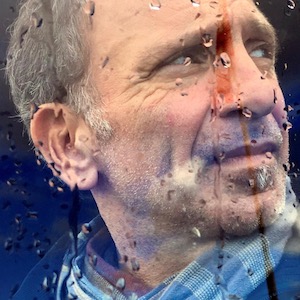News
Obituary: Yannis Behrakis
Saturday 2 March 2019

Yannis Behrakis, one of Reuters' most decorated and best-loved photographers, has died after a long battle with cancer. He was 58.
Over a 30-year career with the agency, he covered many of the most tumultuous events around the world, including conflicts in Afghanistan and Chechnya, a huge earthquake in Kashmir and the Egyptian uprising of 2011.
In the process, he won the respect of both peers and rivals for his skill and bravery. He also led a team to a Pulitzer Prize in 2016 for coverage of the refugee crisis.
Colleagues who worked with him in the field said Reuters had lost a talented and committed journalist.
“It is about clearly telling the story in the most artistic way possible,” veteran Reuters photographer Goran Tomasevic said of Behrakis’ style.
“You won’t see anyone so dedicated and so focused and who sacrificed everything to get the most important picture.”
That dedication was striking. His friend and colleague of 30 years, senior producer Vassilis Triandafyllou, described him as a “hurricane” who worked all hours of the day and night, sometimes at considerable personal risk, to get the image he wanted.
When Behrakis wasn’t absorbed in work, he was warm, funny and larger than life. He could also be fiery.
“One of the best news photographers of his generation, Yannis was passionate, vital and intense both in his work and life,” said US general news editor Dina Kyriakidou Contini.
“His pictures are iconic, some works of art in their own right. But it was his empathy that made him a great photojournalist.”
What underpinned everything Behrakis did in his professional life was a determination to show the world what was happening in conflict zones and countries in crisis.
He recognised the power of an arresting image to capture people’s attention and even change their behaviour. That belief produced a body of work that will be remembered long after his passing.
“My mission is to tell you the story and then you decide what you want to do,” he told a panel discussing Reuters Pulitzer Prize-winning photo series on the European migrant crisis.
“My mission is to make sure that nobody can say: ‘I didn’t know’.”
Behrakis started at Reuters in Athens as a freelancer in 1987, and in January, 1989, was sent on his first foreign assignment to Muammar Gaddafi’s Libya.
He quickly displayed a knack for being in the right place at the right time and for the next three decades, he was regularly on the road covering violence and upheaval across Europe, Russia, the Middle East, Africa and Asia.
The pictures he produced won awards and admiration among the tight-knit community of war correspondents, who noted his rare ability to find beauty amid chaos and for his courage to be at the heart of the action.
In 2000, while covering the civil war in Sierra Leone, Behrakis was traveling in a convoy with Reuters colleagues Kurt Schork and Mark Chisholm, and AP cameraman Miguel Gil Moreno, when it was ambushed by gunmen, believed to be rebels.
Schork, one of Behrakis’ closest friends, was hit and died instantly, and Moreno was also killed. Behrakis and Chisholm escaped.
Both survived the attack by crawling into the undergrowth beside the road and hiding in the jungle for hours until the gunmen disappeared.
Behrakis took a photo of himself just after the ordeal. The picture shows him staring up at the sky, his eyes dazed.
“I think that changed Yannis a lot,” Chisholm said of the attack and Schork’s death. The four reporters had got to know each other during the siege of Sarajevo in the mid-1990s and had become a “band of brothers”.
“He was a great character, a brilliant photographer, a great colleague,” Chisholm said.
Behrakis said he hated war, but, like many others, he loved the travel, adventure and camaraderie that came with it. Rather than putting him off, Schork’s death drove him back to combat zones, at least for a while.
“His memory helped me to ‘return’ to covering what I consider the apotheosis of photojournalism: war photography,” Behrakis wrote.
In recent years, he spent more time in his native Greece, where he recorded the impact of the financial crisis on the country and the influx of hundreds of thousands of refugees entering Europe.
In 2017, Behrakis launched a project to help Reuters build a more diverse team of news photographers.
His appearances at photo festivals and events around the world inspired many young journalists to apply for a bursary from Reuters. He was very proud of this work, and was still looking for a new generation of talent right up until his death.
PHOTO: Yannis Behrakis in Normandy 10 October 2016. Enric Marti/Handout via Reuters
- SOURCE
- Reuters
- « Previous
- Next »
- 445 of 2177